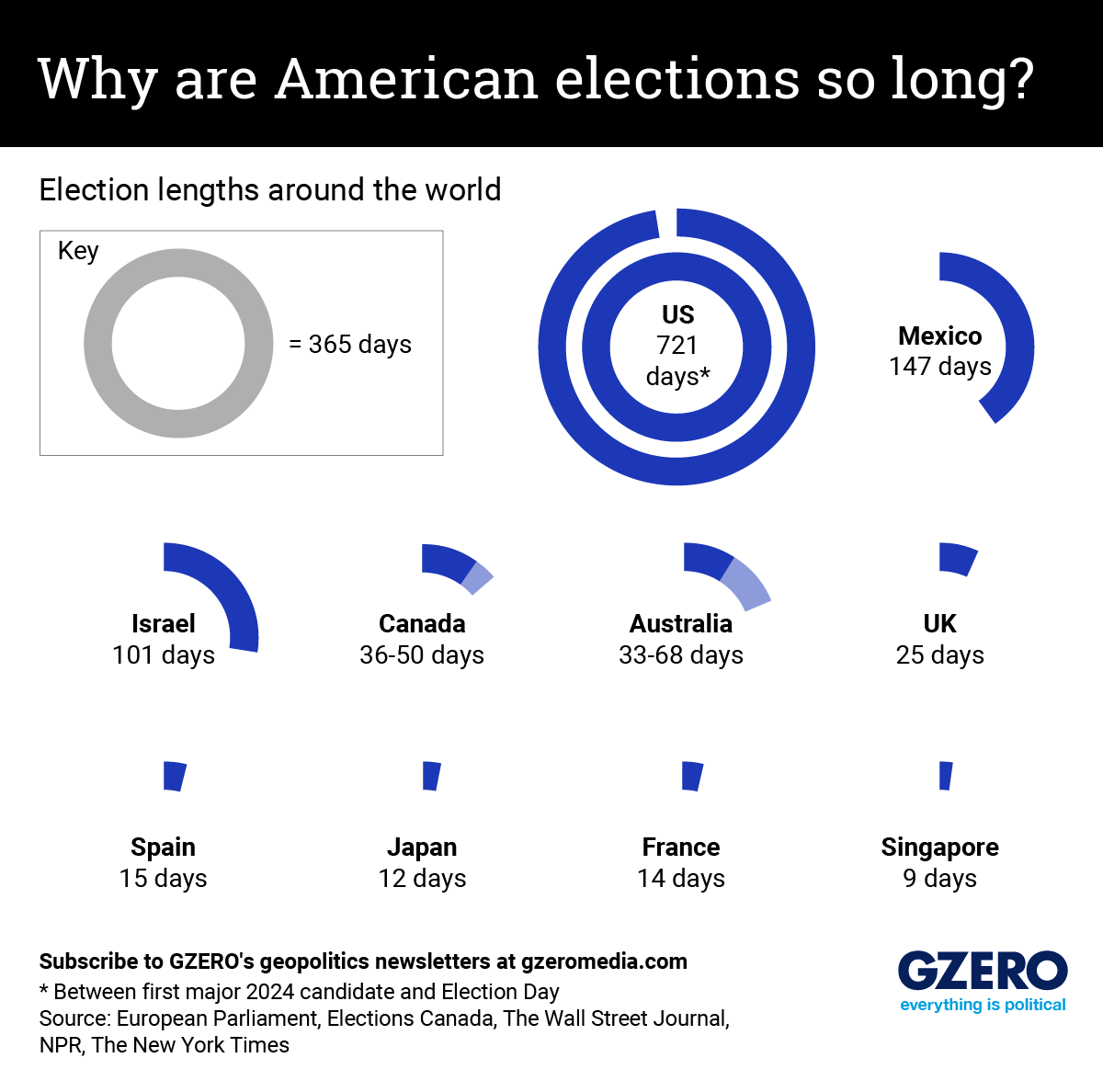February 21, 2024
Former President Donald Trump was the first major candidate to launch his campaign for the 2024 presidential election cycle – on Nov. 15, 2022, roughly two years before Election Day. The US puts no limits on the length of campaigns, which leaves the door open for massive amounts of campaign spending and has the potential to leave voters exhausted by the time they head to the polls.
Many other countries have laws restricting how long candidates can campaign. In Japan, campaigns do not officially start until 12 days before the election. The longest election campaign ever in Canada lasted 78 days in 2015. The Great White North now limits campaigns to 50 days at most.
Should the US follow their lead? Do American voters really need more than a year of campaigning to make up their minds about who will be president for the next four years?
More For You
- YouTube
For many in Iran, it’s a waiting game for how long Ayatollah Khamenei has left to live.
Most Popular
An army soldier stands guard at a post at the Friendship Gate, following exchanges of fire between Pakistan and Afghanistan forces, at the border crossing between the two countries in Chaman, Pakistan February 27, 2026. Picture taken with a mobile phone.
REUTERS/Abdul Khaliq Achakzai
In a 30-minute call on Thursday, President Donald Trump reportedly told Ukrainian President Volodymyr Zelensky he wants to end the war with Russia as soon as possible — aiming for a deal by summer, but ideally within weeks.
Former British ambassador to the U.S. Peter Mandelson leaves his residence after he was released following his arrest by London police on Monday on suspicion of misconduct in public office, following the release of U.S. Justice Department files linked to the late financier and convicted sex offender Jeffrey Epstein, in London, Britain, February 26, 2026.
REUTERS/Toby Melville
The ghost of Jeffrey Epstein continues to haunt the world.
Think you know what's going on around the world? Here's your chance to prove it.
© 2025 GZERO Media. All Rights Reserved | A Eurasia Group media company.
